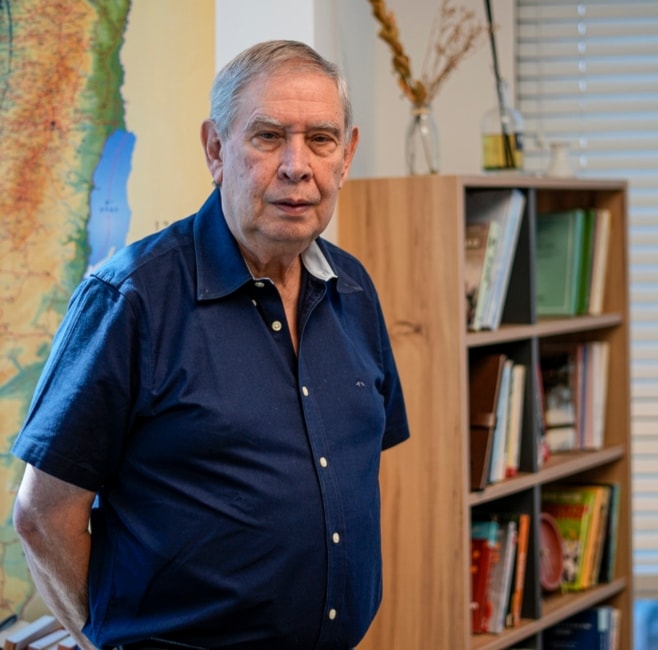Israeli government chose revenge over Gaza captives: Ex-Mossad chief
Former Mossad chief Tamir Pardo says the Israeli government should have first secured a deal for the captives' release and then focused on military objectives.
-

Tamir Pardo, former head of "Israel's" Mossad intelligence agency, poses for a photograph, on Wednesday, Sept. 6, 2023. (AP)
Israeli Prime Minister Benjamin Netanyahu's government prioritized revenge over the lives of captives held by Hamas in the Gaza Strip, pointed out former Mossad chief Tamir Pardo, Anadolu Agency reported.
Pardo, who led Mossad from 2011 to 2016, indicated in an interview for the Israeli media outlet Srugim, that the Israeli government should have accepted Hamas' offer for a prisoner exchange on October 8, 2023, "Israel, however, chose revenge."
He emphasized that Netanyahu's government already knew that the captives could not all be retrieved through a military offensive and could be killed in Israeli airstrikes on Gaza.
"However, the government was not bothered. It rather launched a campaign to convince the public of false narrative as an absolute victory," the ex-Mossad chief stressed.
Pardo asserted that rather than seeking revenge, the Israeli government should have first secured a deal for the captives' release and then focused on military objectives.
His remarks echoed those of Israeli Chief of Staff Herzi Halevi, who told the families of captive soldiers, both living and dead, during a tense meeting on Saturday evening that the effort to secure the release of Israeli captives is growing progressively more challenging and complicated as time goes on, according to Israeli media.
Halevi stressed that the Israeli military is encountering substantial challenges in collecting intelligence on Israeli captives held in the Gaza Strip.
He added that he was “not sure there will be anyone to bring home” if a deal is not reached soon.
Talks regarding a ceasefire and a prisoner exchange deal have been stalled as the Israeli war on the Gaza Strip continues.
The Philadelphi Corridor on the border between Gaza and Egypt and details on the release of Israeli captives held by Hamas and the Palestinian detainees remain the main sticking points to a deal.
The Corridor includes the Rafah border crossing with Egypt which is crucial for aid delivery. It extends 12.6 kilometers from the Karem Abu Salem crossing to the Mediterranean Sea.
The Israeli Prime Minister claims the Corridor is crucial for Hamas' operations and insists on maintaining a military presence there as part of any agreement.
But the Palestinian Resistance has reiterated that its demands are clear and non-negotiable: a permanent cessation of Israeli aggression on Gaza and a complete withdrawal of Israeli occupation forces from the Strip.
It also reaffirms its commitment to the July 2 ceasefire proposal, initially presented by US President Joe Biden and approved by all parties except "Israel".
Netanyahu is adamant about not withdrawing from the Philadelphi Corridor during the first phase of a potential agreement, intending to postpone the withdrawal to the second phase, while Hamas insists on a first-phase withdrawal.
US President Joe Biden has previously remarked that Netanyahu "is not making enough effort" to reach an agreement for the release of Israeli captives held in Gaza.
Read more: Top Palestinian Resistance source dubs Israeli deal offer 'ridiculous'

 3 Min Read
3 Min Read









